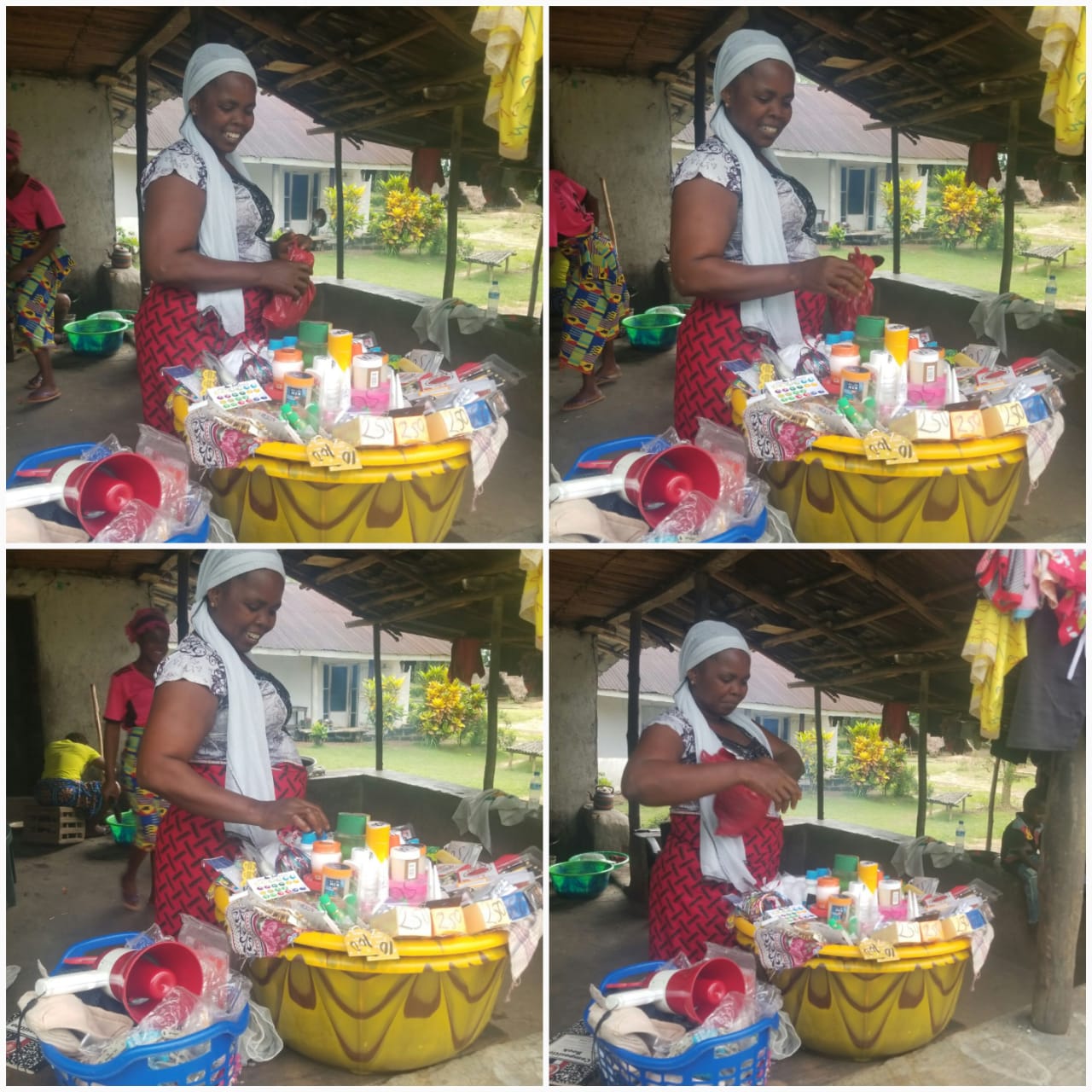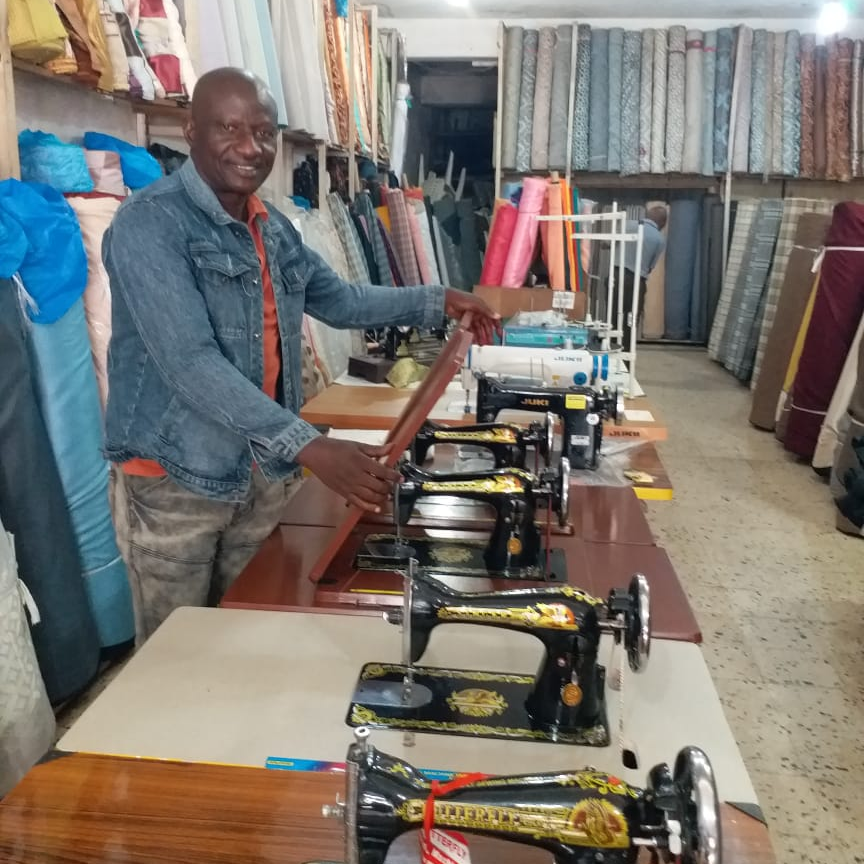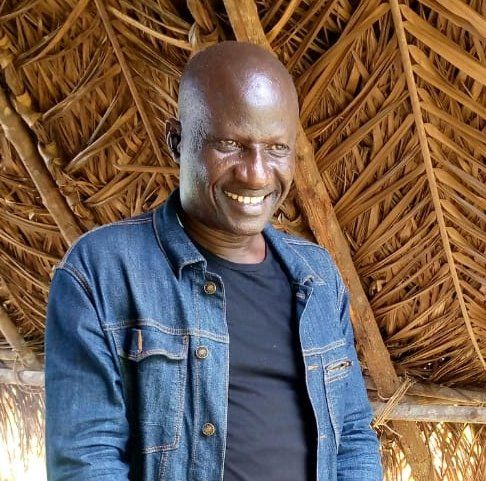Liberia
Liberia
Liberia
KETAAKETI works in Liberia with the local non-governmental organization
Sustainable Livelihoods Support Program (since 2022)
KETAAKETI works in Liberia with the
local non-governmental organization
Sustainable Livelihoods Support Program (since 2022)
KETAAKETI works in Liberia with the
local non-governmental organization
Sustainable Livelihoods Support Program (since 2022)
Why Liberia?
Liberia is a West African country located on the Atlantic Ocean between Sierra Leone, Guinea and the Ivory Coast. The country is about 1/3 the size of Germany, but the population of just over 5 million people is only about 1/16 of Germany. A little more than 1 million of the approximately 5 million people live in the capital Monrovia.
Although Liberia was not affected by colonization in the 19th century, its history has left it extremely dependent on the "West" - especially the United States.
Liberia's recent history is marked by a terrible and brutal civil war (1990 to 2003), which caused the country's development to be set back considerably.
In the Human Development Index, Liberia ranked 178th out of 191 in 2021 - making it one of the 20 poorest countries in the world. In addition to poverty, the country is also plagued by instability (2021: 31st out of 179, "alarming") and corruption (2021: 136th out of 180) and hinders rapid development. One bright spot is the improvement in conditions
since the end of the civil war.
Despite free primary and secondary schools, only an estimated 40% of all children have been able to attend school since the civil war. The necessary infrastructure is particularly sparse in rural areas, so that lessons by European standards can only take place in - or around - the larger cities.

Why Liberia?
Liberia is a West African country located on the Atlantic Ocean between Sierra Leone, Guinea and the Ivory Coast. The country is about 1/3 the size of Germany, but the population of just over 5 million people is only about 1/16 of Germany. A little more than 1 million of the approximately 5 million people live in the capital Monrovia.
Although Liberia was not affected by colonization in the 19th century, its history has left it extremely dependent on the "West" - especially the United States.
Liberia's recent history is marked by a terrible and brutal civil war (1990 to 2003), which caused the country's development to be set back considerably.
In the Human Development Index, Liberia ranked 178th out of 191 in 2021 - making it one of the 20 poorest countries in the world. In addition to poverty, the country is also plagued by instability (2021: 31st out of 179, "alarming") and corruption (2021: 136th out of 180) and hinders rapid development. One bright spot is the improvement in conditions since the end of the civil war.
Despite free primary and secondary schools, only an estimated 40% of all children have been able to attend school since the civil war. The necessary infrastructure is particularly sparse in rural areas, so that lessons by European standards can only take place in - or around - the larger cities.

Why Liberia?
Liberia is a West African country located on the Atlantic Ocean between Sierra Leone, Guinea and the Ivory Coast. The country is about 1/3 the size of Germany, but the population of just over 5 million people is only about 1/16 of Germany. A little more than 1 million of the approximately 5 million people live in the capital Monrovia.
Although Liberia was not affected by colonization in the 19th century, its history has left it extremely dependent on the "West" - especially the United States.
Liberia's recent history is marked by a terrible and brutal civil war (1990 to 2003), which caused the country's development to be set back considerably.
In the Human Development Index, Liberia ranked 178th out of 191 in 2021 - making it one of the 20 poorest countries in the world. In addition to poverty, the country is also plagued by instability (2021: 31st out of 179, "alarming") and corruption (2021: 136th out of 180) and hinders rapid development. One bright spot is the improvement in conditions since the end of the civil war.
Despite free primary and secondary schools, only an estimated 40% of all children have been able to attend school since the civil war. The necessary infrastructure is particularly sparse in rural areas, so that lessons by European standards can only take place in - or around - the larger cities.

A new non-governmental organization initiated by KETAAKETI is starting up in Liberia
In spring 2022, the first contacts were made between KETAAKETI and the Liberian person responsible on site - Frank Songor. There were already aid projects on site, but they worked according to "classic development aid".
After learning about the KETAAKETI method, Frank was eager to set up a new NGO based on these new principles. He also started a campaign to find participants and schools who wanted to participate in such a project.
Frank Songor reports: "As expected, everyone wanted to be part of this group from the beginning. This was all very new to them, after previously paying interest of up to 25% and for only three to four months. Then KETAAKETI came along and that meant an opportunity to build up their own business in the time it took."
The NGO Sustainable Livelihoods Support Program was able to start its first microfinance project in July 2022. The next project followed in October 2022.
A new non-governmental organization initiated by KETAAKETI is starting up in Liberia
In spring 2022, the first contacts were made between KETAAKETI and the Liberian person responsible on site - Frank Songor. There were already aid projects on site, but they worked according to "classic development aid".
After learning about the KETAAKETI method, Frank was eager to set up a new NGO based on these new principles. He also started a campaign to find participants and schools who wanted to participate in such a project.
Frank Songor reports: "As expected, everyone wanted to be part of this group from the beginning. This was all very new to them, after previously paying interest of up to 25% and for only three to four months. Then KETAAKETI came along and that meant an opportunity to build up their own business in the time it took."
The NGO Sustainable Livelihoods Support Program was able to start its first microfinance project in July 2022. The next project followed in October 2022.
A new non-governmental organisation initiated by KETAAKETI is starting up in Liberia
In spring 2022, the first contacts were made between KETAAKETI and the Liberian person responsible on site - Frank Songor. There were already aid projects on site, but they worked according to "classic development aid".
After learning about the KETAAKETI method, Frank was eager to set up a new NGO based on these new principles. He also started a campaign to find participants and schools who wanted to participate in such a project.
Frank Songor reports: "As expected, everyone wanted to be part of this group from the beginning. This was all very new to them, after previously paying interest of up to 25% and for only three to four months. Then KETAAKETI came along and that meant an opportunity to build up their own business in the time it took."
The NGO Sustainable Livelihoods Support Program was able to start its first microfinance project in July 2022. The next project followed in October 2022.
Microfinance projects in Liberia

Agriculture and retail trade
The first project started in July 2022 with around 50 women in "Cape Mount" - the border region with Sierra Leone. It involves microfinance on the one hand for the development of agriculture. Small-scale trade is also financed. This is a great advantage here because the Liberia / Sierra Leone border cuts through the territory of an ethnic group,
which, however, maintains intensive exchanges across the border.

Sewing machines for more independence from expensive imports
In October 2022, a project with around 30 women started, also in "Cape Mount". Here, the microfinance is used to purchase sewing machines and train the women. The aim here is to produce school uniforms in order to become independent of expensive imports. Even though schools in Liberia are free, the students usually need relatively expensive equipment to attend school - uniforms, books, notebooks, pens. The self-sewn uniforms make the women and children a lot more autonomous and independent.



